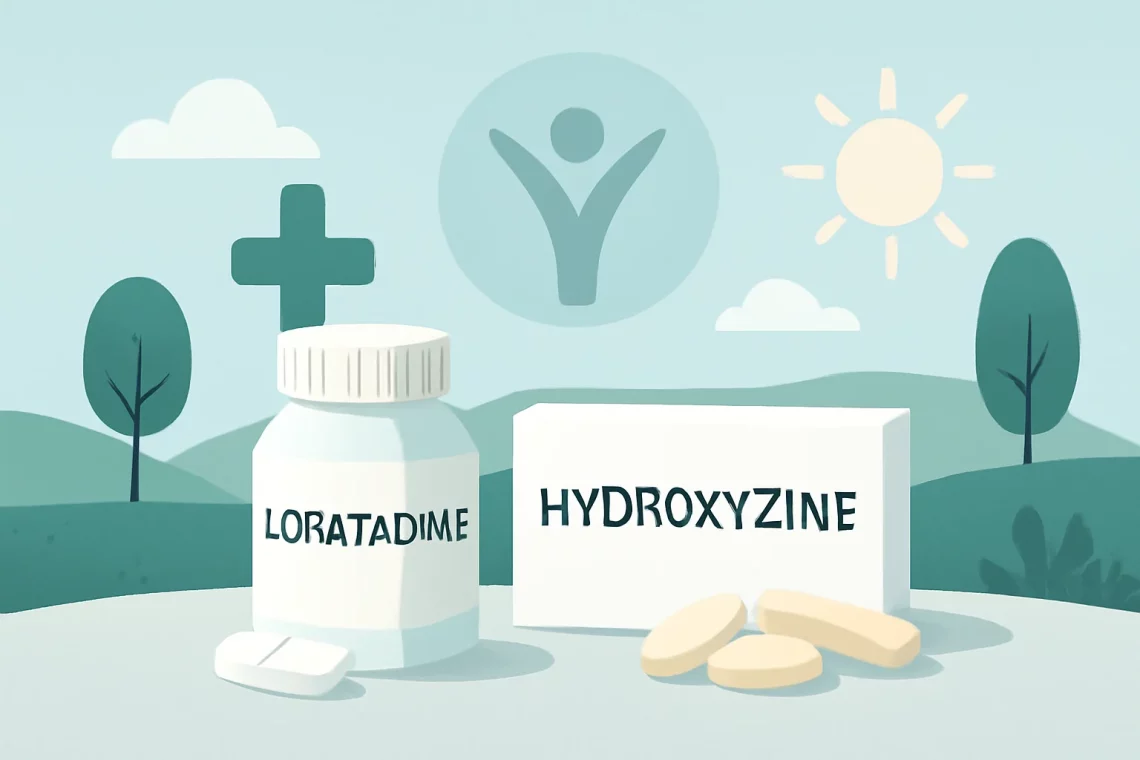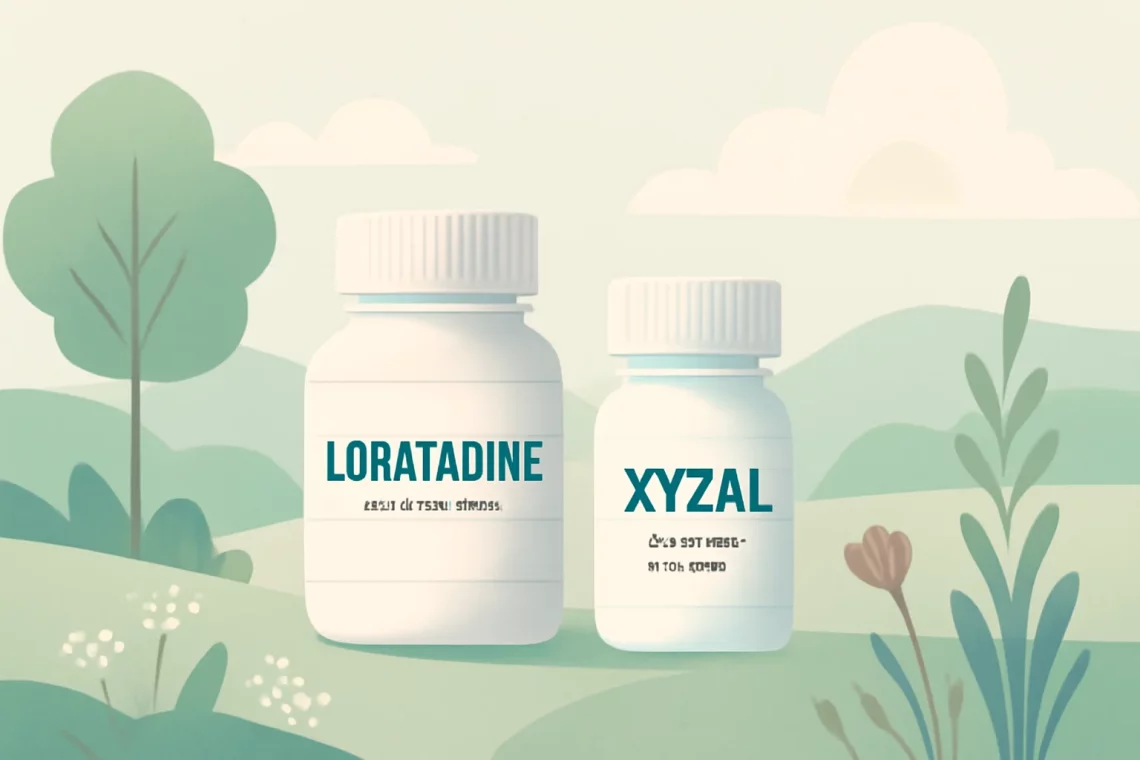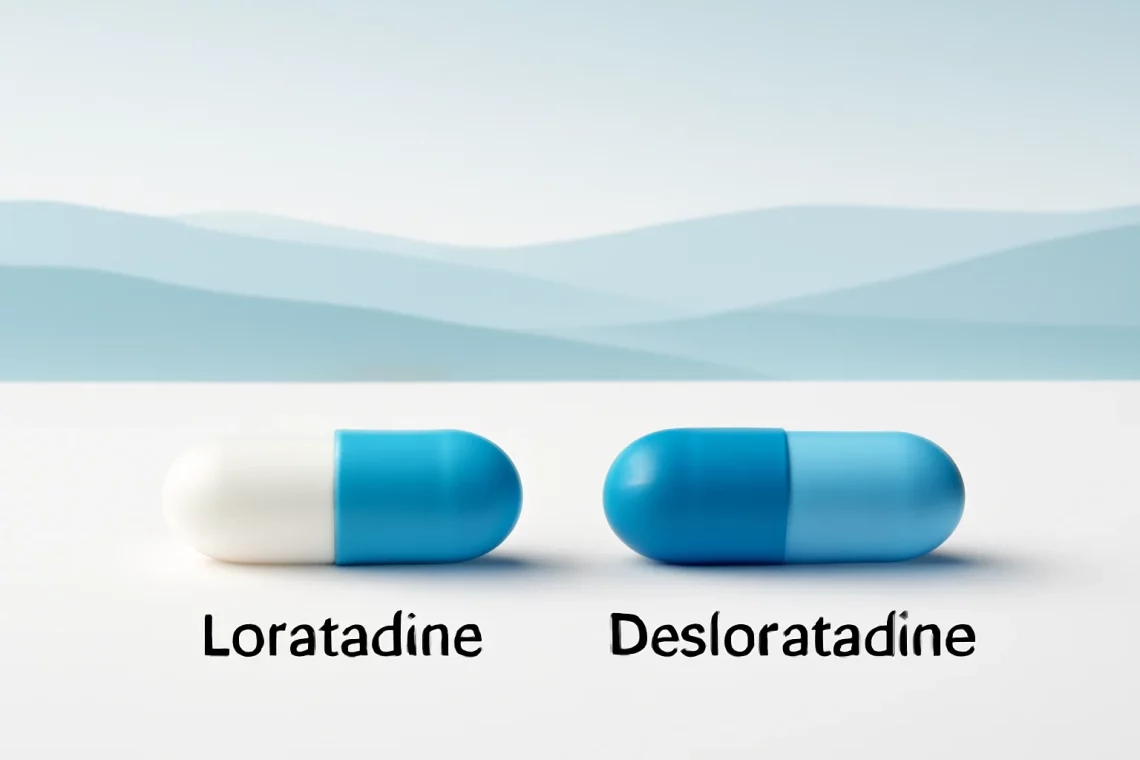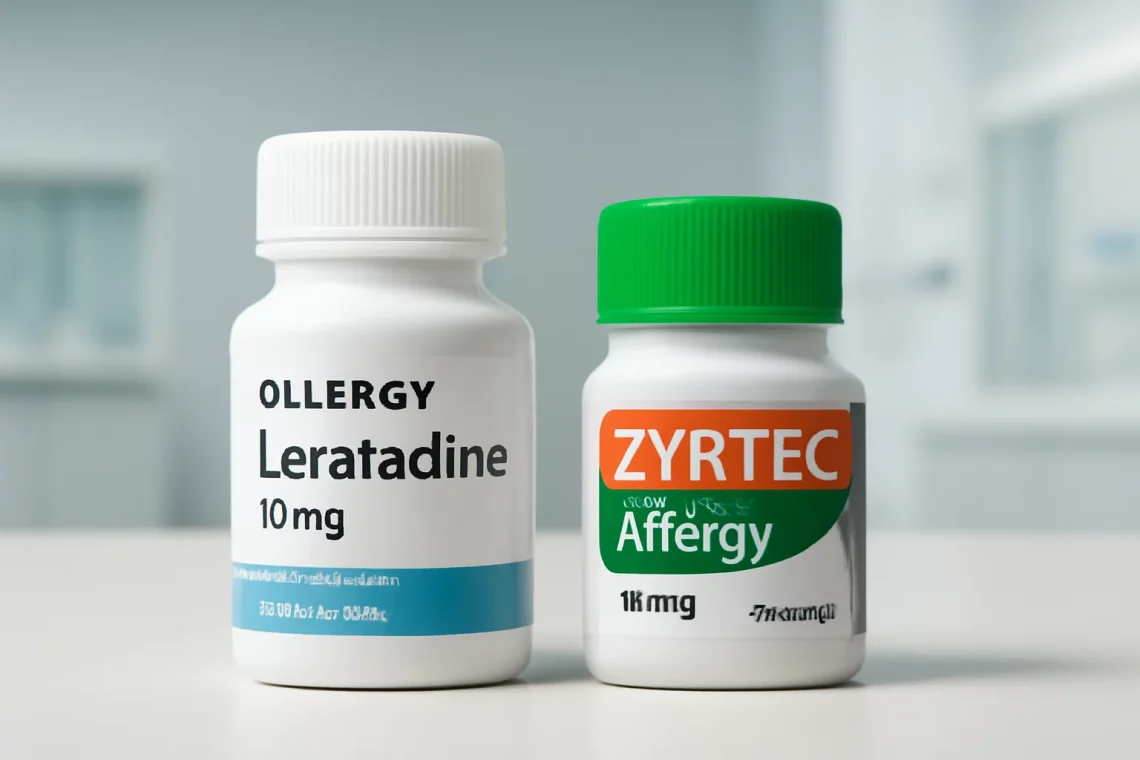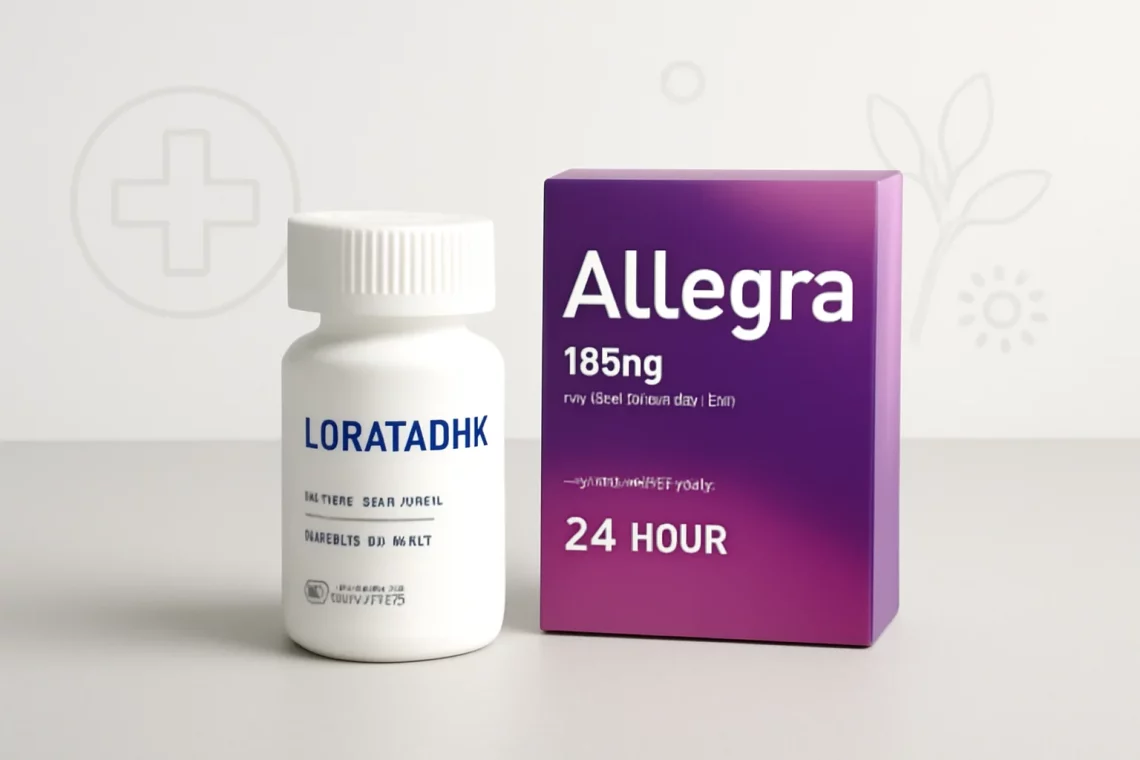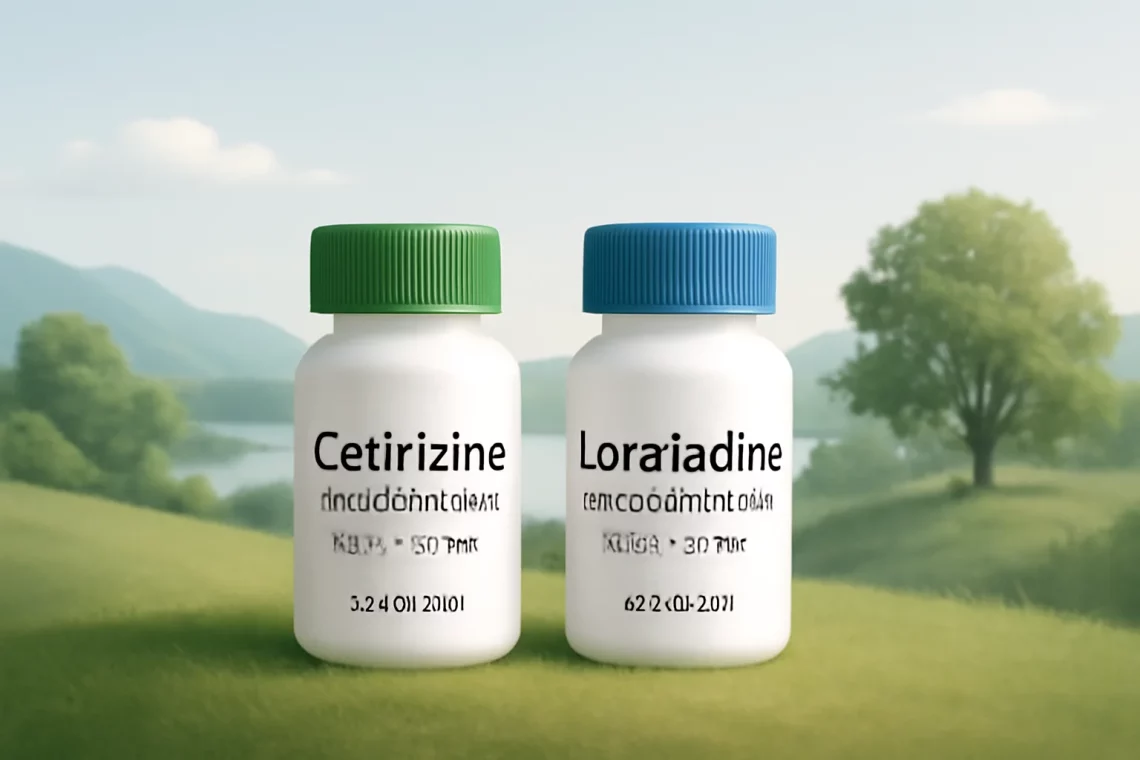-
Loratadine vs Benadryl: Which Allergy Medication Is Right for You?
Allergies can be a significant nuisance, affecting millions of individuals worldwide. The symptoms often include sneezing, itching, runny nose, and even hives, prompting many to seek relief through antihistamines. Two popular options in this category are Loratadine and Benadryl. While both medications aim to alleviate allergy symptoms, they work through different mechanisms and come with varying side effects. Understanding the differences between these two medications can help individuals make informed decisions about their treatment options. Loratadine, an antihistamine that has gained popularity due to its non-drowsy formula, is commonly used for seasonal allergies and hay fever. In contrast, Benadryl, which contains diphenhydramine, is known for its sedative effects and is…
-
Loratadine vs Hydroxyzine: Which Allergy Medication Is Right for You?
Loratadine and hydroxyzine are two widely used antihistamines that serve different purposes in the realm of allergy and anxiety treatment. As individuals seek relief from allergic reactions, hay fever, or anxiety, understanding the differences and similarities between these two medications becomes crucial for making informed decisions. Both drugs are effective in alleviating symptoms associated with allergies, but their mechanisms of action, side effects, and usage guidelines vary significantly. While loratadine is often preferred for its non-drowsy effects, hydroxyzine is known for its sedative properties and is frequently used in cases where anxiety relief is also needed. This article aims to explore the characteristics, uses, and potential side effects of each…
-
Loratadine vs Xyzal: Which Allergy Medication Is Right for You?
Allergies are a common concern for many individuals, often leading to discomfort and disruption in daily activities. The body’s immune response to allergens can trigger various symptoms, such as sneezing, itching, and nasal congestion. To combat these symptoms, a wide range of antihistamines are available on the market. Two popular options are Loratadine and Xyzal, both of which are used to alleviate allergy-related symptoms. Despite sharing a common purpose, these medications differ in their active ingredients, mechanisms of action, and potential side effects. Understanding these differences can empower individuals to make informed decisions about their allergy management. In the realm of allergy relief, choosing the right medication can significantly impact…
-
Loratadine vs Desloratadine: Key Differences Explained
Loratadine and desloratadine are antihistamines widely used for the treatment of allergic conditions. Both of these medications help alleviate symptoms associated with allergies, such as sneezing, runny nose, and itchy eyes. They belong to a class of drugs known as second-generation antihistamines, which are known for causing less sedation compared to first-generation antihistamines. This distinction makes them more appealing to individuals who need to manage allergy symptoms without the drowsiness that often accompanies other allergy medications. Understanding the differences and similarities between loratadine and desloratadine is crucial for those seeking effective allergy relief. While they share a common purpose, the way they act in the body and their specific applications…
-
Loratadine vs Antihistamines: Understanding Their Differences and Uses
Allergies are a prevalent issue that many people face, especially during specific seasons or in response to various environmental triggers. They can cause a range of uncomfortable symptoms, such as sneezing, itching, runny nose, and watery eyes. For those suffering from allergic reactions, antihistamines have long been a go-to solution. Among these, loratadine has gained significant attention due to its effectiveness and relatively low side effects compared to first-generation antihistamines. Understanding how loratadine fits into the broader category of antihistamines is crucial for individuals seeking relief from allergy symptoms. As more people turn to over-the-counter medications, it’s essential to discern which options are most suitable for their needs. The distinction…
-
Loratadine vs Zyrtec: Which Allergy Medication Is Right for You?
Allergies can be a significant burden for many individuals, causing discomfort and affecting daily life. As seasons change, pollen levels rise, and dust accumulates, people often seek relief from the symptoms of allergic rhinitis, such as sneezing, itchy eyes, and runny noses. Among the myriad of over-the-counter medications available, loratadine and Zyrtec are two popular antihistamines that provide relief from these pesky symptoms. Both of these medications are effective, but they work differently and may suit different individuals based on their unique health profiles and lifestyle needs. Loratadine is a second-generation antihistamine known for its non-drowsy properties, making it a preferred choice for those who need to maintain their daily…
-
Loratadine vs Chlorpheniramine: Which Antihistamine is Better?
Allergies can be a significant nuisance for many individuals, leading to symptoms such as sneezing, runny nose, and itchy eyes. In an effort to combat these discomforts, various antihistamines have been developed to alleviate allergic reactions. Two common medications frequently discussed are loratadine and chlorpheniramine. Both of these drugs serve the primary purpose of relieving allergy symptoms, but they belong to different classes of antihistamines and exhibit distinct characteristics. Understanding the differences between loratadine and chlorpheniramine is essential for making informed decisions about allergy management. Factors such as efficacy, side effects, and duration of action can vary significantly between these two medications. By exploring their unique properties, individuals can better…
-
Loratadine vs Allegra: Which Allergy Medication Is Right for You?
Allergies can be a significant source of discomfort, affecting millions of people worldwide. The symptoms can range from mild annoyances, like sneezing and a runny nose, to more severe reactions that can disrupt daily life. As a result, many individuals seek relief through over-the-counter antihistamines. Among the most popular options are Loratadine and Allegra, both of which are known to help alleviate allergy symptoms. Understanding the differences and similarities between these two medications can empower consumers to make informed decisions about their health. Both Loratadine and Allegra are classified as second-generation antihistamines, which means they are designed to minimize drowsiness while effectively blocking histamine receptors. While both medications serve a…
-
Cetirizine vs Loratadine: Which Allergy Medication is Right for You?
In the world of antihistamines, cetirizine and loratadine are two popular choices for individuals seeking relief from allergy symptoms such as sneezing, runny nose, and itchy eyes. Both medications belong to a class of drugs known as second-generation antihistamines, which are designed to alleviate allergic reactions while minimizing drowsiness, a common side effect associated with first-generation antihistamines. As seasonal allergies and allergic reactions become increasingly prevalent, understanding the differences between these two medications can empower consumers to make informed decisions about their health. Cetirizine is known for its effectiveness in treating both indoor and outdoor allergies, while loratadine is often favored for its non-drowsy properties. However, the choice between cetirizine…
-
Loratadine vs Diphenhydramine: Which Antihistamine Is Right for You?
Loratadine and diphenhydramine are two commonly used antihistamines that play a crucial role in managing allergy symptoms. They are both effective in alleviating conditions such as hay fever, allergic rhinitis, and other allergic reactions. While they serve a similar purpose, the way they work and their side effects can vary significantly, making it essential for users to understand the differences between them. Antihistamines function by blocking the action of histamine, a substance in the body that causes allergic symptoms. However, there are two primary categories of antihistamines: first-generation and second-generation. Diphenhydramine falls into the first-generation category, while loratadine is classified as a second-generation antihistamine. This distinction is essential for users,…




